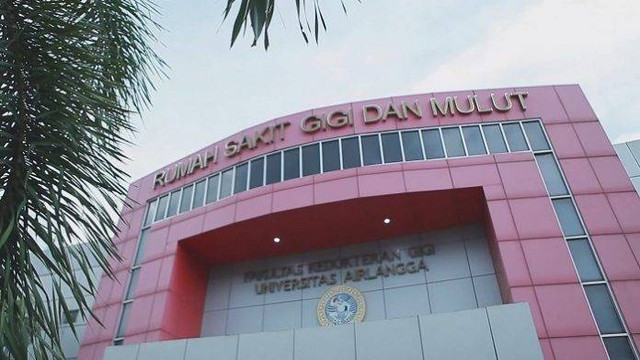Tentang KamiPedoman Media SiberKetentuan & Kebijakan PrivasiPanduan KomunitasPeringkat PenulisCara Menulis di kumparanInformasi Kerja SamaBantuanIklanKarir
2025 © PT Dynamo Media Network
Version 1.102.2
Konten dari Pengguna
Observing Interprofessional Health Communication in RSGM
8 Januari 2025 18:28 WIB
·
waktu baca 3 menitTulisan dari Fathanah Nur Khairani tidak mewakili pandangan dari redaksi kumparan

ADVERTISEMENT
Interprofessional health communication is essential in modern healthcare, particularly in dentistry, where collaboration among professionals ensures optimal patient care. It involves the exchange of information among dentists, doctors, nurses, dental hygienists, and other healthcare professionals to provide comprehensive treatment. During my visit to RSGM (Rumah Sakit Gigi dan Mulut) to observe the dentists at work, I witnessed firsthand how interprofessional communication enhances patient outcomes and fosters teamwork among colleagues. The integration of this communication at RSGM significantly contributes to the overall quality of care provided to patients.
ADVERTISEMENT
Understanding Interprofessional Health Communication in Dentistry
In the context of dentistry, interprofessional health communication goes beyond the dentist-patient relationship. It requires clear, respectful, and efficient communication among dental professionals and those in other health disciplines. This collaboration is particularly important in managing patients with complex medical histories, chronic conditions, or those undergoing treatments that may impact oral health. Effective interprofessional communication helps ensure that all members of the healthcare team are informed about the patient’s overall health, allowing for coordinated care that addresses both dental and medical needs.
For instance, patients with diabetes may require special care in managing their oral health, as they are at higher risk for gum disease. In these cases, dentists must communicate with the patient’s primary care physician or endocrinologist to ensure that their dental treatment plan complements their medical management. Similarly, for patients undergoing chemotherapy, coordination with oncologists and other specialists is crucial to minimize the risk of oral complications.
ADVERTISEMENT
Observations of Interprofessional Health Communication at RSGM
From my observations at RSGM, interprofessional health communication plays a significant role in both patient care and workplace dynamics. Here are some key ways in which it is utilized:
Collaboration with Medical Teams: Dentists at RSGM often collaborate with doctors to provide care for patients with complex conditions. For example, patients with heart disease may require dental treatment adjusted to avoid complications. This is achieved through clear communication between the dental team and the medical team, ensuring safe care.
Case Discussions and Team Meetings: Regular team meetings allow dentists to collaborate with oral surgeons, hygienists, and other specialists. These discussions ensure that all professionals are aligned on treatment plans and that no aspects of patient care are overlooked.
ADVERTISEMENT
Referrals and Follow-Ups: When a dentist identifies a medical issue beyond their scope, they promptly refer patients to the appropriate specialist. This ensures timely and coordinated care, improving patient outcomes.
Workplace Collaboration: Communication between dental hygienists, nurses, and administrative staff ensures smooth patient flow and efficient care. Clear communication fosters a supportive and efficient working environment.
Patient Education and Support: Dentists at RSGM work with other health professionals to educate patients about the links between oral and overall health. For example, a nurse may assist in providing dietary advice to a patient with hypertension.
Conclusion
Interprofessional health communication at RSGM improves patient care by fostering collaboration among healthcare professionals. It leads to better health outcomes, reduced risks, and enhanced patient satisfaction. By working together, the healthcare team ensures that patients receive comprehensive, coordinated care that addresses both their medical and dental needs.
ADVERTISEMENT

